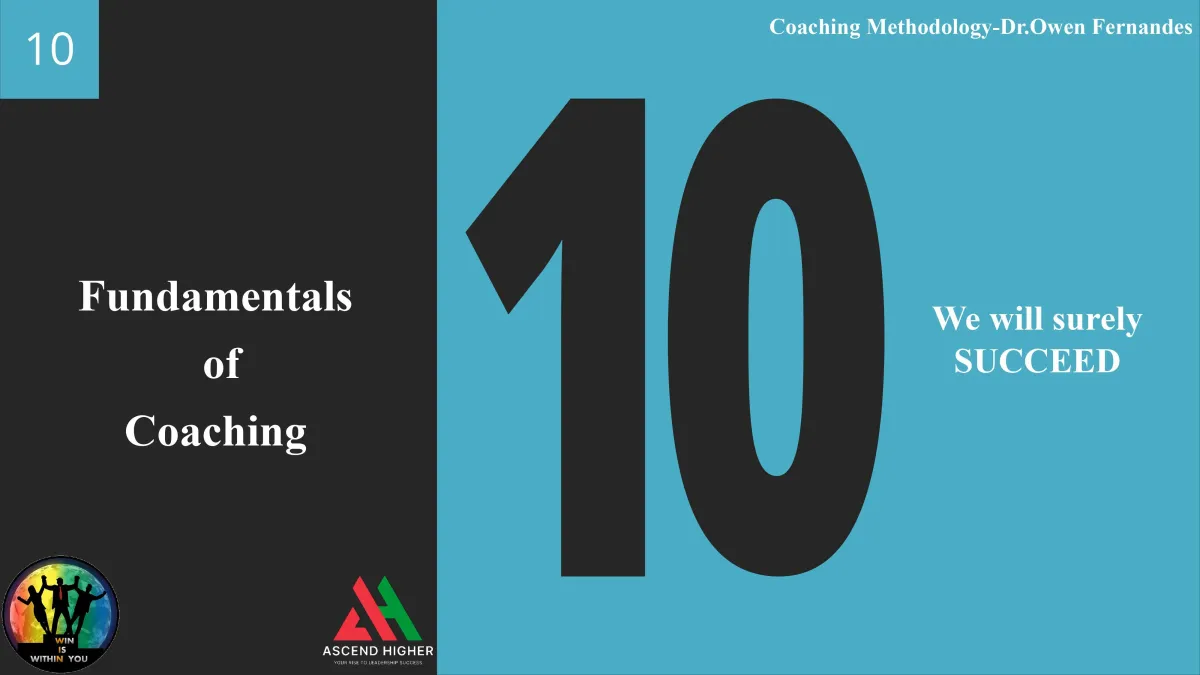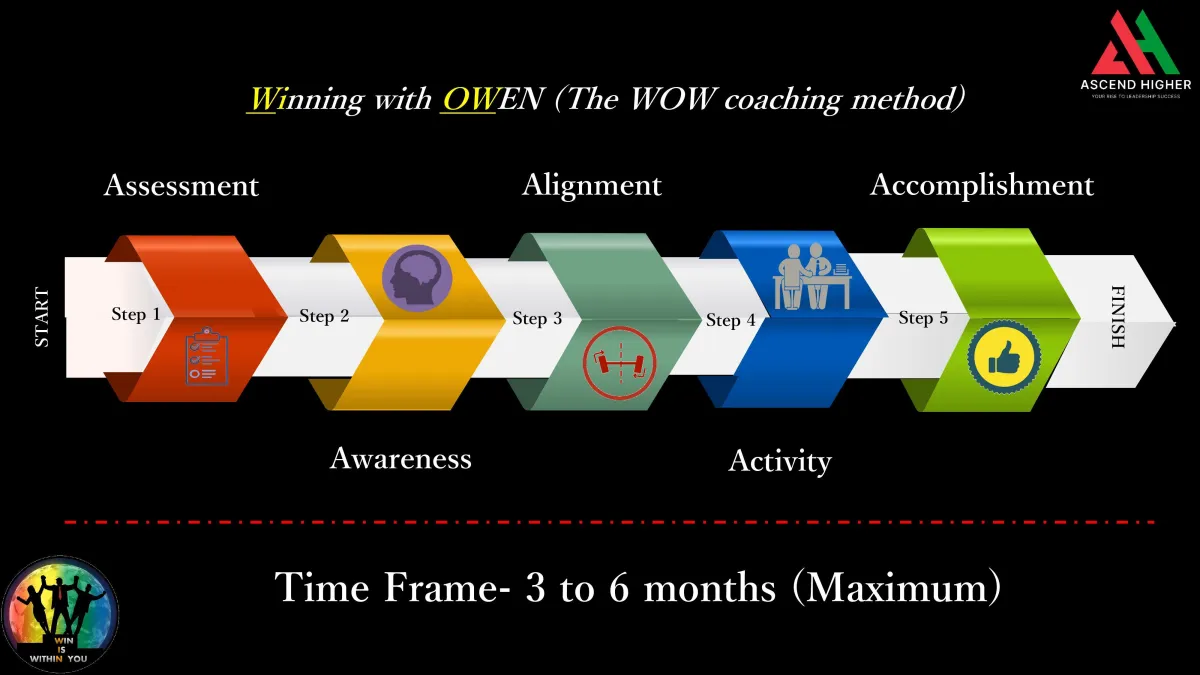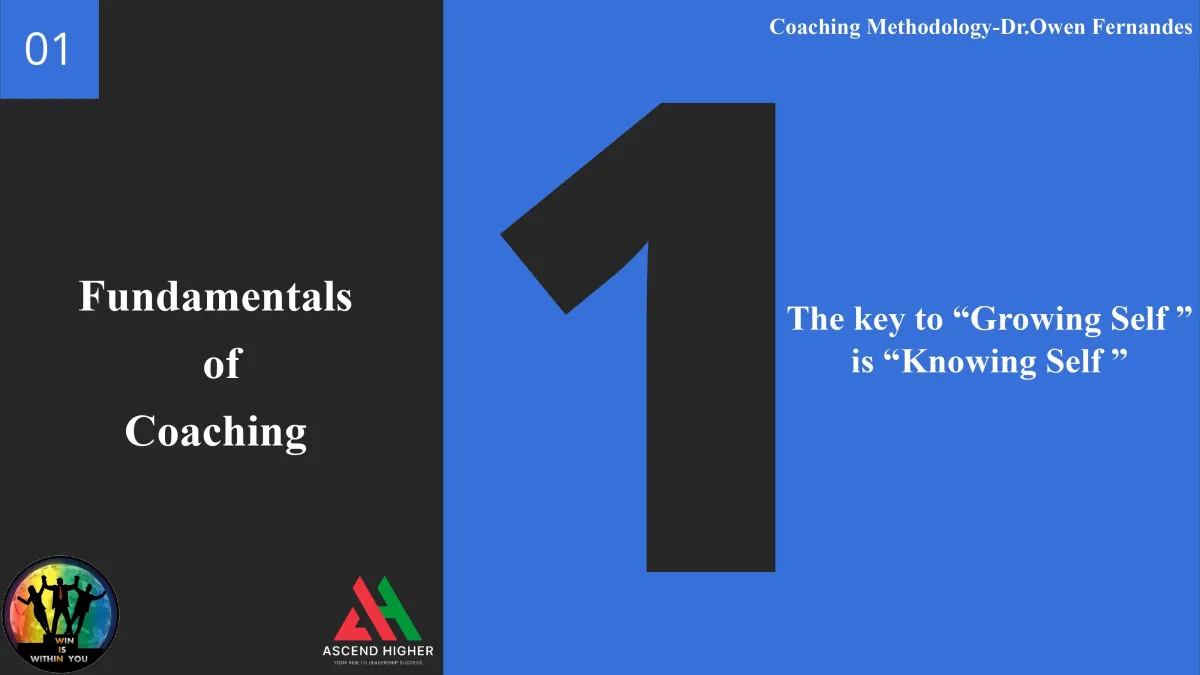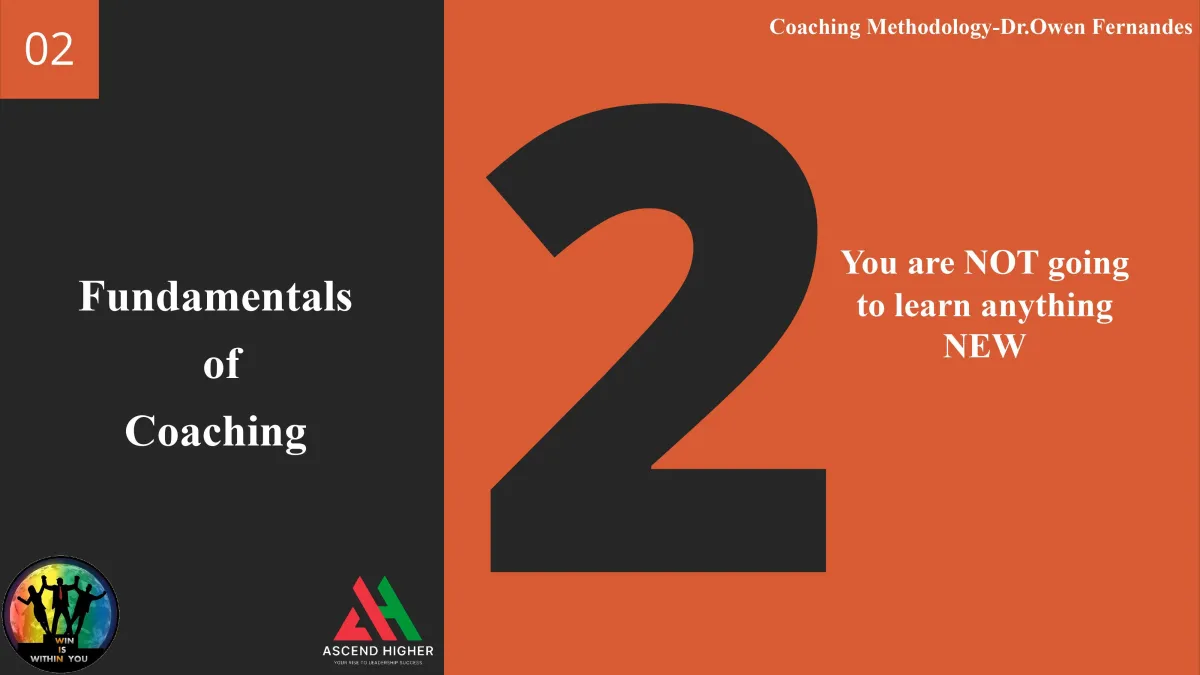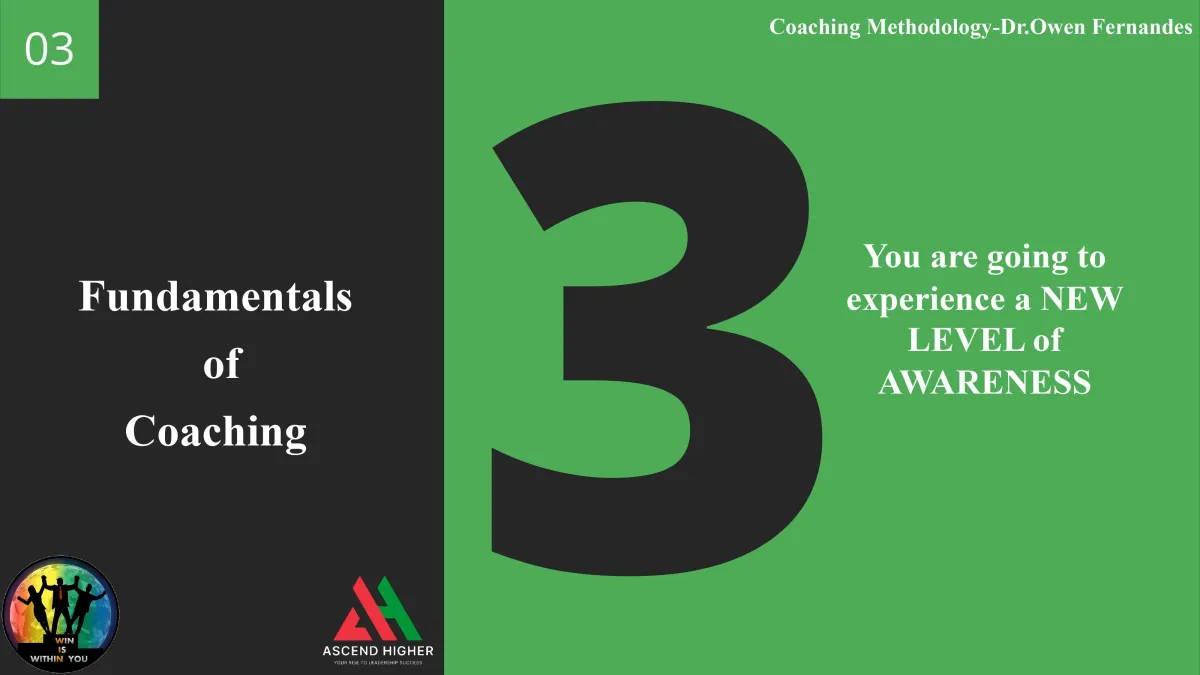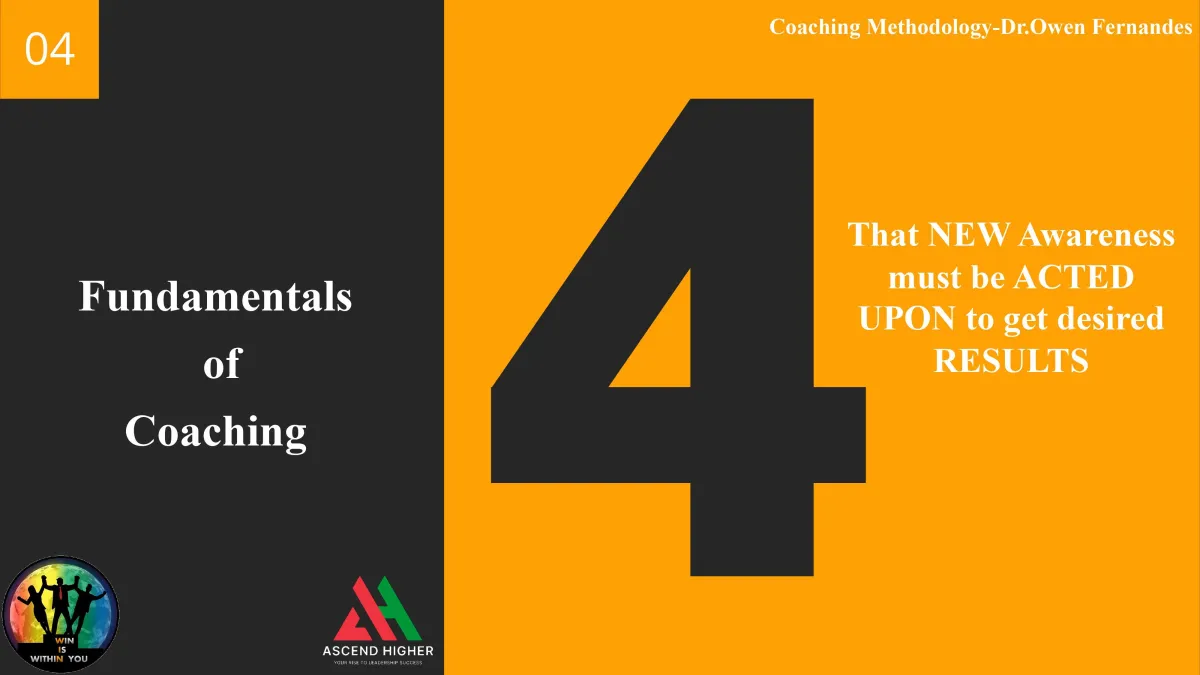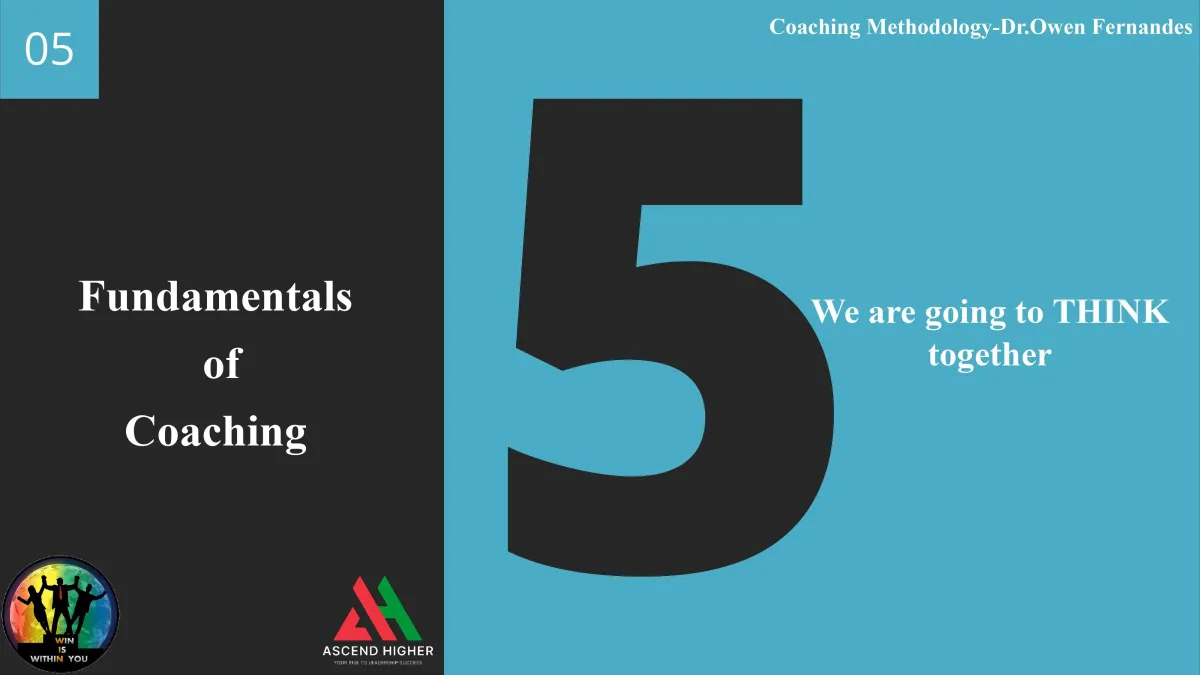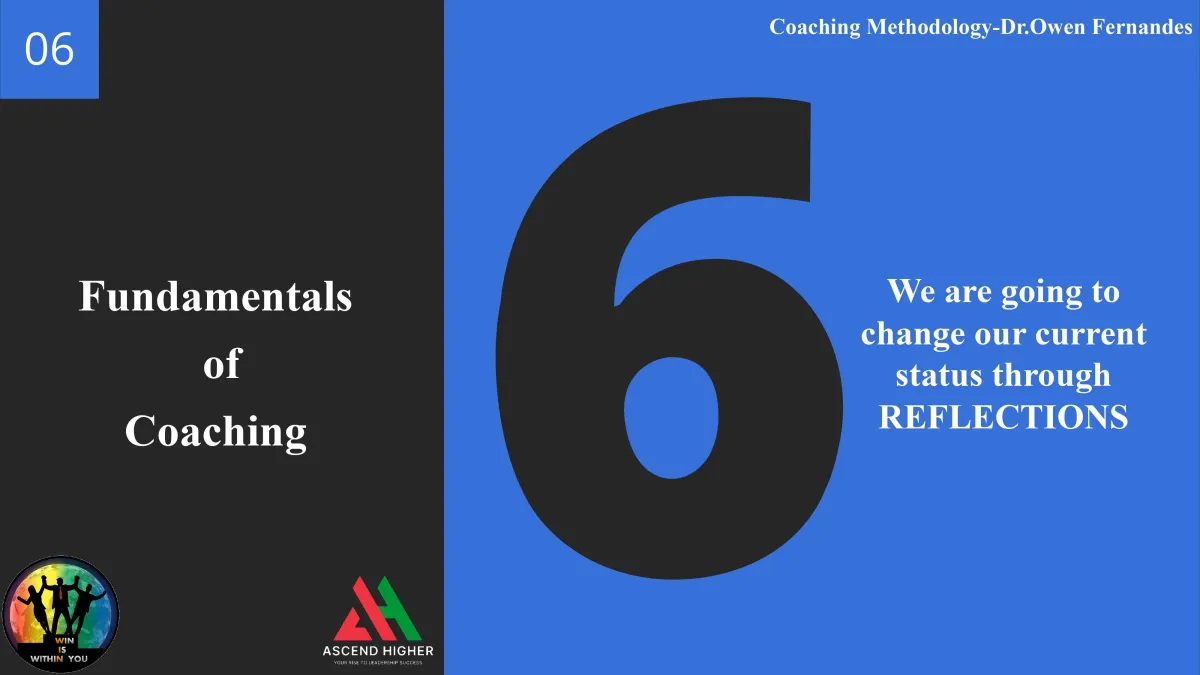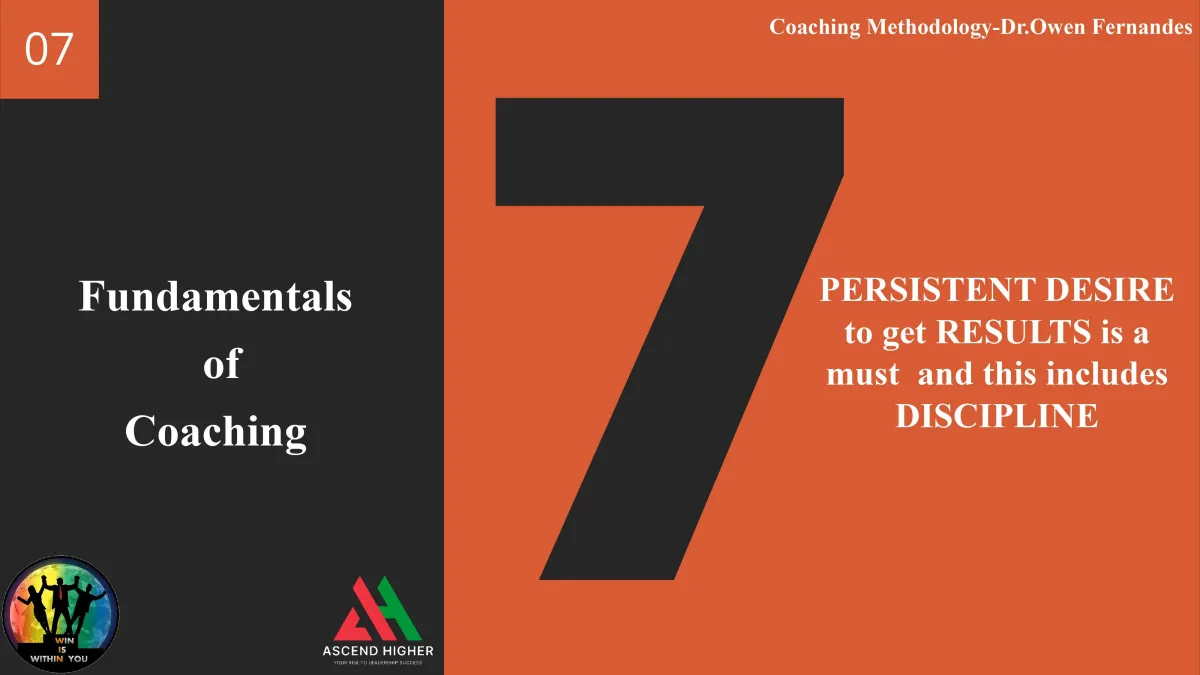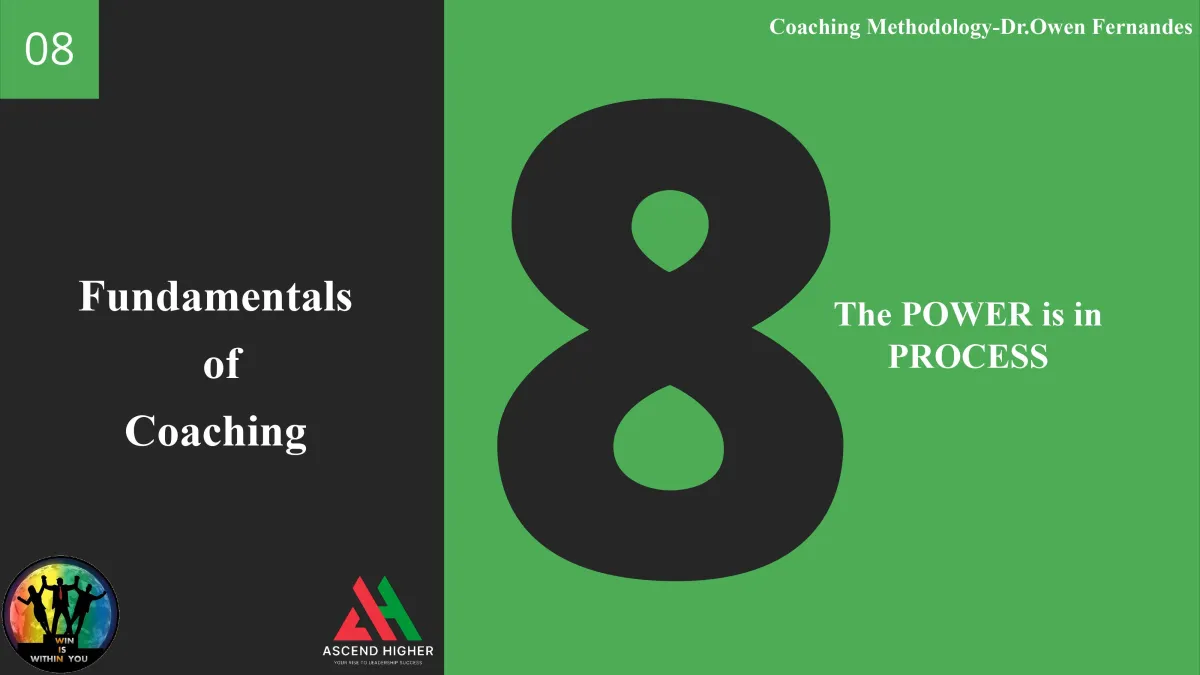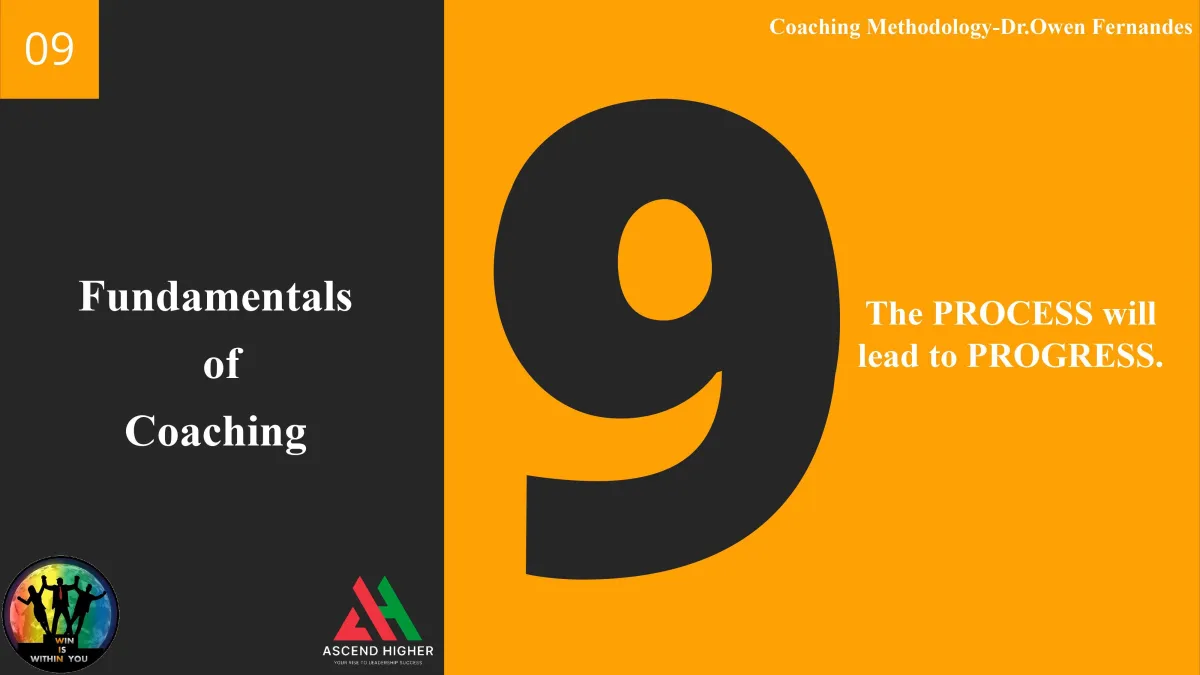EXPLORE
HOLISTIC LIFE COACHING
EXPLORE
HOLISTIC LIFE COACHING

Coaching is a process of self-discovery. If you know yourself and are confident that all aspects of your life and actions are perfect, then you don’t need a coach but a lot of hard work and determination to achieve your goals. It may take a lot of time, but you will still get there through self-learning.
However, if you have doubts, blocks, and limiting beliefs and need assistance (from another individual’s perspective) in overcoming and move forward positively (to the future) then maybe through coaching sessions we then can sort it out. The hard work aspect still remains. All you need is to be open and trust the process.
Also, through my many years of experience, I can say all are not coachable. Many want results and validations but are not open to trying different options. They have a single-dimensional approach to goals and struggle and feel frustrated when it doesn’t work. Some have high goals but poor habits and are closed to learning new habits.

Coaching is a process of self-discovery. If you know yourself and are confident that all aspects of your life and actions are perfect, then you don’t need a coach but a lot of hard work and determination to achieve your goals. It may take a lot of time, but you will still get there through self-learning.
However, if you have doubts, blocks, and limiting beliefs and need assistance (from another individual’s perspective) in overcoming and move forward positively (to the future) then maybe through coaching sessions we then can sort it out. The hard work aspect still remains. All you need is to be open and trust the process.
Also, through my many years of experience, I can say all are not coachable. Many want results and validations but are not open to trying different options. They have a single-dimensional approach to goals and struggle and feel frustrated when it doesn’t work. Some have high goals but poor habits and are closed to learning new habits.
OWEN'S COACHING METHODOLOGY
OWEN'S COACHING METHODOLOGY
INTRODUCTION TO LIFE COACHING
There are some definite guidelines on what is and is not coaching.
Coaching has many benefits, far too many to mention within this document. Each participant in the coaching alliance creates and holds the agenda, making every alliance uniquely designed to serve only the success of the participant.
Coaching is not appropriate for the following:
- People with dependencies such as drugs and alcohol
- Therapy for people who have suffered abuse
- A shoulder to cry on-People who are abusing others
- People who are experiencing mental illness
- Counselling
Therapists in some of the above fields deal with events that have happened in the past. Coaching is specifically about the present and the future.
Whilst reference to past events is the normal practice within a coaching relationship to apply background and context, a Coach unless declaring otherwise, is NOT qualified to deal with any past emotional trauma or turmoil that is preventing the participant from moving forward.
HOW TO GET THE MOST OUT OF YOUR COACH
Be open and honest with yourself and your Coach. We all have careers that demand our time and can readily absorb our conscious thinking. However, this coaching time is yours, working purely on you and what it is that YOU want to achieve. If you are struggling to prioritize your needs above those of the business or other people, then we already have a lot of work to do in getting you from doing to thinking, efficient to effective.
Make time and space for your coaching – if you are feeling stressed or disorganized for the meeting you will get less from it. Your Coach will help you set targets for eachsession and may set you additional challenges. You will get the most out of this process if you take the time to study and follow through on what you agreed to do between sessions.
Immediately tell your Coach if they could be more effective in some way and/or if you have a problem with the coaching process.
Consider allowing fifteen minutes after the coaching session to write down and record anything that occurred to you, and plan the time to follow through on commitments made to yourself.
Keeping notes during the sessions will assist in recording your conscious thoughts and improve your awareness of any shifts in your thinking during the sessions.
We strongly recommend that you invest in a journal to keep notes from the sessions. There will be things that you want to come back to at some point, and it will serve as a reference point for any learning and growth you experience.
Habitually writing your thoughts is an excellent way to focus your mind, exercise your will, and gain clarity on who you want to become and what you want to achieve. Your coach will discuss this with you during the coaching sessions.
ETHICS & STANDARDS
The following outlines the code of conduct applicable to all Coaches:
- Your Coach will conduct themselves with dignity, honesty, integrity, and responsibility.
- Participants are assured that anything they discuss with their Coach will remain confidential unless required by law, or the participant gives permission in writing.
- Your Coach will not be judgmental or give unwelcome advice.
- Your Coach will be clear about the boundary between coaching and other therapies, such as counseling (see previous information).
- Your Coach will not recommend a specific therapist unless qualified to do so.
- Your Coach will not give misleading information about coaching and its benefits.
- All coaching agreements are easy to understand, with the expectations of both the coach and the participant clearly stated.
- Your Coach will be willing to recommend other coaches if it is more appropriate for the client.
- Whenever possible, coaches are encouraged to raise the profile of coaching and correct any misconceptions about what coaching is and isn’t.
- Your Coach will treat all clients in a way that is respectful of people’s differences in relation to disability, gender, age, race, religion, and sexual orientation.
TERMS & CONDITIONS OF COACHING
- Meetings will start at the scheduled time, even if the participant is delayed.
- Cancellation of a session for any reason other than.
- Bullet list emergencies will result in the surrender of the session. Your development should be your priority.
- You are encouraged to call or email your Coach between sessions if you are stuck, confused, challenged or just want to share your successes! Please respect your Coach’s time and be willing to keep interim calls to 5-10 minutes. Thank you.
- Your coach will set your personal assignments to complete between sessions to help you in your growth.
- The coaching relationship is for a minimum of 12 sessions unless otherwise stated/agreed – this ensures your best chances of making major steps forward in your awareness and goals.
- Your confidentiality is vital, and your coach will never discuss or impart information about you to anyone else. Your coach is required to keep a record of the number of hours that they coach. Unless you request otherwise, your name will be entered on that log. This is only ever seen by the professional standards committee member checking your coach’s suitability for professional registration. Thank you in advance for your support of professional standards in coaching.
- Your coach will never use the information given by you during a coaching session for his or her own benefit.
- Your coach will often give you their perspective on your situation and may help to provide a selection of approaches to any one situation. Please note that participants are responsible and accountable for any action that is or isn’t taken based on a summing up of the discussion. The coach accepts no liabilities for the consequences of action or inaction on the part of a participant.
- Your Coach is not qualified to give specific legal or financial advice.
- Please be aware that this is a coaching relationship, designed to support you in finding your own options and that any suggestions given are based on helping you to make your own decisions and should not be taken as authoritative or as advice.
- Whether the subject matter is business, financial, health, or any other, please always seek advice from relevant qualified professionals before taking action.
HOW I OPERATE AS YOUR COACH
As your Coach I make the following commitments to you: I will believe in you completely, and I will know that you can succeed in your aims.
I will stretch you, challenge you, and sometimes confront you, but always from a supportive position of service. I will be warm to you, laugh with you, and will travel with you as an equal partner in your own success journey.
I will be honest, open, and non-judgmental.
I will help you to achieve all that you can be as long as you stay true to your own best interests.
My clients are all ready to create the goals they want in their life, and it is my role to challenge you further than you would normally challenge yourself. My specific purpose is to get you to where you want to be faster than you would do on your own.
Everything that passes between us will stay confidential and I will always stand within the standards & ethics under which I have been trained and qualified.
Sometimes I will offer you an alternative view of what you are saying. I might hear a certain tone in your voice, or I might sense a fear that you have not noticed. I will always tell you when this happens. I will not insist that you address it – coaching is always about what you want. It is my job to help you to see what you want to see, not to make you face things that you are not ready to look at.
Often, I will ask you to consider going further than you initially think that you are prepared to go. You are always in charge of what action steps you commit to between sessions. If I challenge you (and I almost certainly will) to do something extra at some point, you always have the following options:
- You can say, “no”
- You can say, “yes”
- You can negotiate the request up or down.
Be assured that I will be ready for our scheduled meetings; I will be relaxed and ready to go without any of my own circumstances clouding my mind!
In working with your Coach, you are making the following commitments to yourself:
To be open to new challenges and be prepared to stretch yourself to achieve them.
To be open and honest with yourself and me and trust that I will never judge you on anything you say.
To make the necessary time adjustments so that you get the most out of your coaching – this includes turning up on time for all scheduled meetings, completing the session preparation sheets, and committing to following through with the action steps that you choose to take between sessions.
To be true to yourself and your own principles and values (you will identify/clarify your values during the program).
To be prepared to share a laugh or two along the way and to let me know if laughing is the last thing you feel like doing on that particular day.
To let me know straight away if anything about our coaching relationship bothers you or is not working as well as it could.
To look after yourself well between coaching sessions. The bigger the challenge you are undertaking, the greater the degree of self-care that is needed to support your wellness and energy.
Self-management is a vital component of emotional intelligence. I do not work with people who are continually prepared to work themselves into the ground at the expense of their health and well-being.
Your coaching program is about building your awareness. It is only the beginning. Personal excellence, self-achievement, and development are a lifelong process that only you can be committed to.
Always remember that while having a goal is a vital component to life-success, the purpose of a goal is not the actual material or positional outcome, but who you become by achieving it.
Finally, Coaching is the only way you can significantly increase your performance or life situation, because a good coach is not advising you what to you, but helps you find the correct questions that you need to ask yourself, and then guide you on the path that is set on the direction towards your desired goal.
INTRODUCTION TO LIFE COACHING
There are some definite guidelines on what is and is not coaching.
Coaching has many benefits, far too many to mention within this document. Each participant in the coaching alliance creates and holds the agenda, making every alliance uniquely designed to serve only the success of the participant.
Coaching is not appropriate for the following:
- People with dependencies such as drugs and alcohol
- Therapy for people who have suffered abuse
- A shoulder to cry on-People who are abusing others
- People who are experiencing mental illness
- Counselling
Therapists in some of the above fields deal with events that have happened in the past. Coaching is specifically about the present and the future.
Whilst reference to past events is the normal practice within a coaching relationship to apply background and context, a Coach unless declaring otherwise, is NOT qualified to deal with any past emotional trauma or turmoil that is preventing the participant from moving forward.
HOW TO GET THE MOST OUT OF YOUR COACH
Be open and honest with yourself and your Coach. We all have careers that demand our time and can readily absorb our conscious thinking. However, this coaching time is yours, working purely on you and what it is that YOU want to achieve. If you are struggling to prioritize your needs above those of the business or other people, then we already have a lot of work to do in getting you from doing to thinking, efficient to effective.
Make time and space for your coaching – if you are feeling stressed or disorganized for the meeting you will get less from it. Your Coach will help you set targets for eachsession and may set you additional challenges. You will get the most out of this process if you take the time to study and follow through on what you agreed to do between sessions.
Immediately tell your Coach if they could be more effective in some way and/or if you have a problem with the coaching process.
Consider allowing fifteen minutes after the coaching session to write down and record anything that occurred to you, and plan the time to follow through on commitments made to yourself.
Keeping notes during the sessions will assist in recording your conscious thoughts and improve your awareness of any shifts in your thinking during the sessions.
We strongly recommend that you invest in a journal to keep notes from the sessions. There will be things that you want to come back to at some point, and it will serve as a reference point for any learning and growth you experience.
Habitually writing your thoughts is an excellent way to focus your mind, exercise your will, and gain clarity on who you want to become and what you want to achieve. Your coach will discuss this with you during the coaching sessions.
ETHICS & STANDARDS
The following outlines the code of conduct applicable to all Coaches:
- Your Coach will conduct themselves with dignity, honesty, integrity, and responsibility.
- Participants are assured that anything they discuss with their Coach will remain confidential unless required by law, or the participant gives permission in writing.
- Your Coach will not be judgmental or give unwelcome advice.
- Your Coach will be clear about the boundary between coaching and other therapies, such as counseling (see previous information).
- Your Coach will not recommend a specific therapist unless qualified to do so.
- Your Coach will not give misleading information about coaching and its benefits.
- All coaching agreements are easy to understand, with the expectations of both the coach and the participant clearly stated.
- Your Coach will be willing to recommend other coaches if it is more appropriate for the client.
- Whenever possible, coaches are encouraged to raise the profile of coaching and correct any misconceptions about what coaching is and isn’t.
- Your Coach will treat all clients in a way that is respectful of people’s differences in relation to disability, gender, age, race, religion, and sexual orientation.
TERMS & CONDITIONS OF COACHING
- Meetings will start at the scheduled time, even if the participant is delayed.
- Cancellation of a session for any reason other than.
- Bullet list emergencies will result in the surrender of the session. Your development should be your priority.
- You are encouraged to call or email your Coach between sessions if you are stuck, confused, challenged or just want to share your successes! Please respect your Coach’s time and be willing to keep interim calls to 5-10 minutes. Thank you.
- Your coach will set your personal assignments to complete between sessions to help you in your growth.
- The coaching relationship is for a minimum of 12 sessions unless otherwise stated/agreed – this ensures your best chances of making major steps forward in your awareness and goals.
- Your confidentiality is vital, and your coach will never discuss or impart information about you to anyone else. Your coach is required to keep a record of the number of hours that they coach. Unless you request otherwise, your name will be entered on that log. This is only ever seen by the professional standards committee member checking your coach’s suitability for professional registration. Thank you in advance for your support of professional standards in coaching.
- Your coach will never use the information given by you during a coaching session for his or her own benefit.
- Your coach will often give you their perspective on your situation and may help to provide a selection of approaches to any one situation. Please note that participants are responsible and accountable for any action that is or isn’t taken based on a summing up of the discussion. The coach accepts no liabilities for the consequences of action or inaction on the part of a participant.
- Your Coach is not qualified to give specific legal or financial advice.
- Please be aware that this is a coaching relationship, designed to support you in finding your own options and that any suggestions given are based on helping you to make your own decisions and should not be taken as authoritative or as advice.
- Whether the subject matter is business, financial, health, or any other, please always seek advice from relevant qualified professionals before taking action.
HOW I OPERATE AS YOUR COACH
As your Coach I make the following commitments to you: I will believe in you completely, and I will know that you can succeed in your aims.
I will stretch you, challenge you, and sometimes confront you, but always from a supportive position of service. I will be warm to you, laugh with you, and will travel with you as an equal partner in your own success journey.
I will be honest, open, and non-judgmental.
I will help you to achieve all that you can be as long as you stay true to your own best interests.
My clients are all ready to create the goals they want in their life, and it is my role to challenge you further than you would normally challenge yourself. My specific purpose is to get you to where you want to be faster than you would do on your own.
Everything that passes between us will stay confidential and I will always stand within the standards & ethics under which I have been trained and qualified.
Sometimes I will offer you an alternative view of what you are saying. I might hear a certain tone in your voice, or I might sense a fear that you have not noticed. I will always tell you when this happens. I will not insist that you address it – coaching is always about what you want. It is my job to help you to see what you want to see, not to make you face things that you are not ready to look at.
Often, I will ask you to consider going further than you initially think that you are prepared to go. You are always in charge of what action steps you commit to between sessions. If I challenge you (and I almost certainly will) to do something extra at some point, you always have the following options:
- You can say, “no”
- You can say, “yes”
- You can negotiate the request up or down.
Be assured that I will be ready for our scheduled meetings; I will be relaxed and ready to go without any of my own circumstances clouding my mind!
In working with your Coach, you are making the following commitments to yourself:
To be open to new challenges and be prepared to stretch yourself to achieve them.
To be open and honest with yourself and me and trust that I will never judge you on anything you say.
To make the necessary time adjustments so that you get the most out of your coaching – this includes turning up on time for all scheduled meetings, completing the session preparation sheets, and committing to following through with the action steps that you choose to take between sessions.
To be true to yourself and your own principles and values (you will identify/clarify your values during the program).
To be prepared to share a laugh or two along the way and to let me know if laughing is the last thing you feel like doing on that particular day.
To let me know straight away if anything about our coaching relationship bothers you or is not working as well as it could.
To look after yourself well between coaching sessions. The bigger the challenge you are undertaking, the greater the degree of self-care that is needed to support your wellness and energy.
Self-management is a vital component of emotional intelligence. I do not work with people who are continually prepared to work themselves into the ground at the expense of their health and well-being.
Your coaching program is about building your awareness. It is only the beginning. Personal excellence, self-achievement, and development are a lifelong process that only you can be committed to.
Always remember that while having a goal is a vital component to life-success, the purpose of a goal is not the actual material or positional outcome, but who you become by achieving it.
Finally, Coaching is the only way you can significantly increase your performance or life situation, because a good coach is not advising you what to you, but helps you find the correct questions that you need to ask yourself, and then guide you on the path that is set on the direction towards your desired goal.
WHY DO YOU NEED A LIFE COACH?
WHY DO YOU NEED A LIFE COACH?
Book a FREE 30 minute Meeting
I BELIEVE IN YOU!
TOGETHER WE CAN!
I BELIEVE IN YOU!
TOGETHER WE CAN!

Copyright 2025 All rights reserved | Powered by VEXiON

